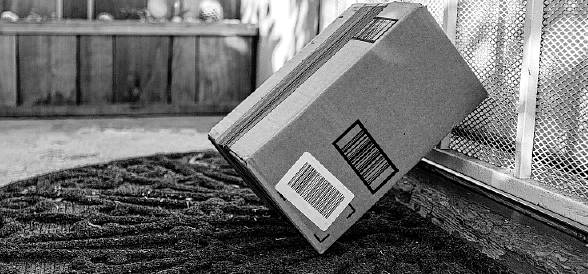Let’s take advantage of internet sales tax rule
By Calvin H. Johnson
Last year in Wayfair v. South Dakota, the U.S. Supreme Court allowed that states could collect sales tax on internet sales even when the vendor has no physical presence in the state. Before, sales tax could be collected from out-of-state vendors only if they had a “brick and mortar” store or warehouse in the state.
Texas needs to take advantage of the new rule. The tax, if collected, could help satisfy any of our state’s urgent financial needs.
The rule is an administrative one, not passed by the Legislature. The Texas comptroller’s office recently announced that they will not enforce the collection of sales tax against aremote vendor selling less than $500,000 a year in Texas.
But that exemption is too high. If Texas imposes burdensome taxes on Texans, it can and should impose them on out-of-state vendors.
Now, the Constitution does prevent a state from imposing a higher burden on out-of-state Americans than on its own people. The Articles of Confederation provided that, “[t]he better to secure and perpetuate mutual friendship and intercourse among the people of the different states in this union,” the inhabitants of any state shall be “subject to the same duties, impositions and restrictions as the inhabitants of that state.”
But there is no constitutional grounds for favoring out-of-state vendors. The Supreme Court overruled the old “brick and mortar,” or physical presence, requirement because it was, in effect, “a judicially created tax shelter for businesses that limit their physical presence in a State.” It is “not the purpose of the commerce clause,” the court wrote, “to relieve those engaged in interstate commerce from their just share of state tax burden.”
The court added: “It is essential to public confidence in the tax system that the Court avoid creating inequitable exceptions.”
If a remote seller receives revenue from Texas, it can be asked to collect Texas sales tax from that revenue. Texas cannot be sued to force a $500,000 exemption. It will give that much up only if it shoots itself in its own foot.
Before Wayfair, 23 mostly low-population states that had fewer stores and warehouses tried to appease the physical presence rule by adopting a uniform tax base, a single tax rate for the entire state and payment to only one state office. South Dakota also adopted a$100,000 annual exemption and gave out free software that was immune from audit.
None of that is necessary now .
The Texas comptroller, with all the other states, won. However, the Texas comptroller went beyond South Dakota’s $100,000 exemption to $500,000. Why?
Thanks to the internet and a competitive market for sales tax software, the cost of sales tax compliance is cheap and, with competition, getting cheaper. The commercial software providers say they can keep up with 300 changes in sales tax a year, tack the sales tax onto the customer invoice, collect the tax from the sales price and pay it over to the states, all for about $0.01 a transaction. It is essentially the same cost to comply with Texas tax from an out-of-state terminal as it is from a Texas terminal.
The $500,000 exemption is far too high given that compliance costs only a penny per transaction.
Texas needs to pay to attract and hold the best teachers. Schools need books and buildings. This exemption does not help Texas get what it needs.
Johnson is the John T. Kipp Chair in Corporate and Business Law at The University of Texas at Austin.
